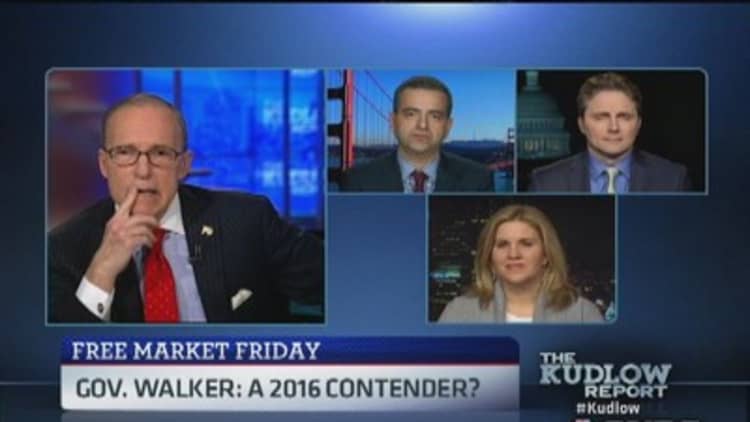
House Speaker John Boehner hit the pause button Thursday on major immigration reform in 2014, just one week after Republicans unveiled their "principles" for an overhaul.
Why did the Republican leader – who has said for the past year that he wants to pass immigration legislation – slam on the brakes? Here are three reasons:
Timeline
There's a real fear among House Republicans that moving immigration reform now could divide the party in a mid-term election year.
Despite worries that the GOP would lose real ground among Latinos in national elections if immigration reform stalls, the majority of GOP House members come from districts without a substantial Latino population. In fact, 142 Republicans out the 232 in the House come from districts that are less than 10 percent Latino. Immigration just not a pressing issue for them – or a winning one.
Without a clear deadline for passing immigration reform – unlike the budget deadlines that so often drive legislative action – opponents asked Boehner why GOP leaders wanted reform now, before a tough election year that could yield Republican gains.
More from NBC News:
What to watch at Sochi: Friday's must-see events
Leno says emotional goodbye: 'Really is time to go'
F-bomb flap: Did Russia snoop on US diplomat?
'Trust'
Boehner cited a lack of "trust" between House Republicans and President Barack Obama – a very real sentiment from the House GOP conference. Rank-and-file Republicans feel the president has overplayed his hand constitutionally when it comes to executive actions on the Affordable Care Act, and they fear he'd do the same thing regarding border security within an immigration reform bill. That's a red flag for members whose constituents worry that an immigration overhaul would end up attracting more undocumented immigrants.

It's worth noting that there's no direct proof that Obama would not enforce border security. Immigration reform advocates frequently point out the president's record levels of deportations, and their calls for executive action to halt them have so far gone stubbornly unheeded. And the Senate immigration bill that passed last year would have spent billions on border security and interior enforcement – something that even the top backer of those border security measures, Republican Sen. Bob Corker of Tennessee, said was "probably overkill."
Boehner's requirement that Obama "earn back trust" in the eyes of the American people or House Republicans is also very vague. The speaker offered no specific criteria for the president to meet, although Congress and the White House are continuing to grapple over the debt ceiling and unemployment insurance – both areas that could be ripe for negotiations.
Bottom line: many Republicans, mindful of their constituents' dislike of the president and his signature health care law, are simply wary to work with Obama on a controversial issue in an election year, and they believe there's no downside to punting to next year.
Border Security
Since the beginning of the push on immigration reform, Republicans have made clear that their top priority is to "secure the border first." But what constitutes border security for the House GOP Conference is relatively undefined. Unlike in the Senate bill, it's never been put down in legislation. Does a secure border mean drones? More fencing? Boots on the ground? And how costly is that proposition?
Boehner realized that the border security piece of the puzzle – not to mention unresolved issues over worker visas and legalization for undocumented immigrants – would be hard to resolve this year.
So what happens next?
Perhaps a smaller piecemeal bill on immigration reform could happen at some point during the year but as long as border security remains an issue and GOP lawmakers don't want to take the plunge, immigration reform in 2014 seems more unlikely than ever today.
—By Luke Russert of NBC News. Carrie Dann contributed.

